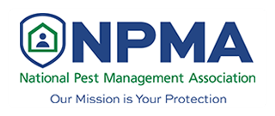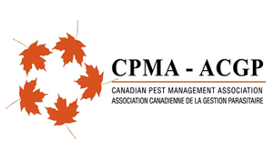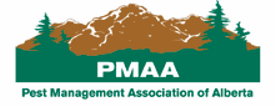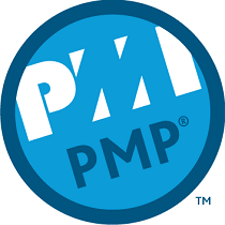Bat Removal Calgary

Calgary Bat Control
Bats are nocturnal animals, sleeping through the day while hanging upside down from roosts. They feed their young with milk and are the only mammals which are capable of true flight. In the Prairie Provinces, there are two species of bats which can become a nuisance. These are the Little Brown Bat (Myotis lucifugus) and the Big Brown Bat (Eptesicus fuscus). In case of Little Brown Bat, the young are born in late June to early July. Each female has a single offspring. The young are born blind, hairless and unable to fly. They are totally dependent on their mothers for about the first three weeks. The nursery colonies start to break up by early August when the young are able to fly and feed themselves. Big Brown Bat’s youngs are born in May and June. There is one offspring per female, but there may be two. The young start to become independent of their mothers at about four weeks of age. Big Brown Bats do not hibernate until late October or early November. Most bats are insectivorous (insect-eating) mammals. They eat up to half their own body weight in insects, per night. They give birth to live young and nurse them until the young can be self-sufficient. These animals are the only true flying mammals. Their bodies are furred and their “wings” are thin membranes which extend from their forearms and fingers, along their bodies to the hind limbs. Bats navigate by means of a sonar-like system which allows them to hunt insects at night and to fly in total darkness. They emit high frequency sounds which bounce off solid objects and return to their large sensitive ears. Most bats are nocturnal and do their flying and hunting at night. Bats have a low birth rate of one or two offspring per year. They compensate for this by living for several years and by having few natural predators.
Problems Due to Bats
In the Prairie Provinces, there are two species of bats which can become a nuisance. These are the Little Brown Bat (Myotis lucifugus) and the Big Brown Bat (Eptesicus fuscus). The major concern when bats are present is the possibility of their transmitting rabies to man and domestic animals. Rabies has been identified in a variety of bats throughout Canada. Histoplasmosis can be transmitted from bat droppings to man. This disease is caused by a fungus (Histoplasma) and affects the lungs of humans. There is a potential risk of histoplasmosis infection when large accumulations of bat droppings must be removed. Pestica provides bat control services fast and in timely manner in Calgary and area. Pestica Pest Control is the # 1 Pest Control Company in Calgary near you and it offers Bat Removal for complete and ever lasting pest control solutions with guarantee.
For effective and affordable bats removal, contact your pest control service technician for free consultation and right advice.
Bats Control Calgary
Bats Prevention Service
1-800-691-2893
403-708-3024
Pestica Green
Pest Control Calgary
Bats Removal Calgary
How We Control Bat
- At dusk time, technician will start by checking the interior of your home to find where the bats are coming out and also try to find their species.
- Attempts to remove bats from a building should not be conducted in June or July. Young bats, not yet able to fly, will be trapped inside where they will eventually starve.
- Your technician may install one way devices as needed
- All the exclusion methods will be made to ensure the safety of both bats and people
Bats Control Calgary
Bats Prevention Service
1-800-691-2893
403-708-3024
Pestica Green
Pest Control Calgary
Bats Removal Calgary
Pestica Green Pest Control Has
A Privilege Of Membership With Leading
Pest Control Industry
Professional Organizations






Quality, Not Quantity, Google Reviews 100%
From Our Customers
We are a top rated, 100% locally owned, operated & loved Canadian Pest Management Company in Alberta. Please review us on Google because your opinion matters for us.
To read our weekly posts about Pest Control Calgary, click on the icon.

Frequently Asked Questions
About Bat Control in Calgary
What do bats eat?
Bats are insectivorous (insect-eating) mammals. They eat up to half their own body weight in insects, per night. Bats are important to our ecosystems and our economy because all bat species in Canada eat insects including pest species that impact agricultural and forestry resources, as well as disease-spreading pests such as mosquitoes.
Where do they live?
Most bats in Alberta, live and roost in old large trees with cracks, crevices, and sloughing bark , under rock-crevices, bridges, in caves and mines in which bats can hide. In locations where natural roosting habitat has been lost, bats may roost in many parts of a building structure including under roofing, siding, fascia boards, flashing & rafters, in cracks of the chimney or walls, behind shutters or under a porch roof.
How do bats get enter your home?
Bats use small holes in structures and they rely on existing holes or gaps to gain entry. They often occupy tight crevices, and can squeeze into spaces with a diameter as small 1.3 cm.
Which bats species do occupy buildings for roosting sites in Alberta?
Most bats occupying building roosts in Alberta are either Little Brown Myotis or Big Brown Bats. Long-legged Myotis, Long-eared Myotis, and Silver-haired Bats may also use buildings but are rarely reported.
What are the differences between bats droppings and mice droppings?
Bat guano (droppings) is often concentrated in one place whereas mouse droppings are usually scattered. Bat droppings crumble when crushed whereas mouse droppings are hard and not easily crumbled. Bat droppings have shiny pieces (insect exoskeletons) whereas mouse droppings have vegetation. Bat droppings are often in difficult-to-reach locations, such as on top of leaves or stuck to siding.
What are the types of bats roosts?
Day roosts, maternity roosts and night roosts are three types of bats roosts.
Have you or your pet been bitten by bats?
If you come into contact with a bat in Alberta, contact the Provincial Rabies Hotline at 1-844-427-6847 for instructions on receiving treatment (alternatively, contact Health Link at 811). It is important, you receive prompt medical attention from a doctor or nurse, even if you are unsure whether you were bitten. Treatment will typically consist of post-exposure prophylaxis, a series of shots that helps your immune system destroy the virus during its early stages.


